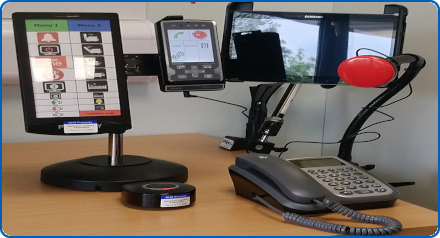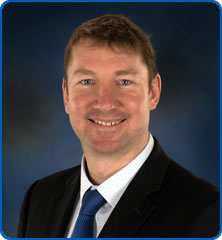Dr Faith Emery - Neonatal Medicine
GMC Number: 6026355
Year of first qualification: 2001 St Bartholomew's and The London School of Medicine and Dentistry
Specialty: Neonatal Medicine
Secretary: Julie Deady
Telephone: 0117 323 6141
Abdominal Aortic Aneurysm Screening Programme
Abdominal Aortic Aneurysm Screening Programme
The Bristol Bath & Weston AAA Screening programme was introduced in January 2012 as part of the national NHS Abdominal Aortic Aneurysm Screening Programme.
We cover all GP practices in Bristol, South Gloucestershire, Bath and North-East Somerset, and North Somerset.
Reflecting on 2024/2025
- We invited around 6000 men for screening
- Just over 80% of invitees attended for the scan
- We also screened 16 older men who self-referred for screening
We detected AAA’s in around 1% of attendees
Treatment options
Men with large aneurysms will be referred to the Major Arterial Centre at Southmead Hospital, Bristol.
An urgent clinic appointment will be made to see a vascular surgeon at your local hospital such as Weston General Hospital, Bristol Royal Infirmary or Southmead Hospital.
The outcome of this conversation will determine the best way forward.
If surgery is recommended, you can expect either an open procedure or an endovascular repair.
More information on AAA treatment is available from www.nhs.uk/conditions/abdominal-aortic-aneurysm
We’re working to reduce health inequalities and improve access to care. In partnership with NHS organisations and disability groups, we’ve produced a series of short videos explaining the AAA screening process to support people with a learning disability. To view these videos visit AAA screening - YouTube
Contact AAA Screening
The following should be used for general enquiries, appointment changes and self-referrals.
Telephone: 0117 4148610
Email: aaascreening@nbt.nhs.uk
Bristol Bath & Weston AAA Screening Programme
Office 2, Level 3, Gate 38
Brunel building
Southmead Hospital
Bristol
BS10 5NB
Primary Care Newsletter
Our newsletters are now uploaded to Clarity Teamnet, to the library and our North Bristol NHS Trust page.
Please note Clarity Teamnet is not a public website and you will need to log in.
Mr Thomas Wright - Plastic Surgery
GMC Number: 446062
Year of first qualification: 1997
Specialty: Plastic Surgery
Clinical interests: Skin Cancer, Limb Reconstruction, Soft Tissue Sarcoma, Head & Neck Reconstruction
General/ Sarcoma Secretary- Lisa Groves
Telephone number: 0117 4147605
Lower Limb Secretary- Rundeer Singh
Telephone number: 0117 4147590
Dr Reston Smith - Anaesthetics
GMC Number: 6077378
Year of first qualification: 2003, University of Nottingham
Specialty: Intensive Care Medicine
Clinial interests: Intensive Care Medicine and Anaesthesia
Telephone number: 0117 414 5114
Dr Reston Smith qualified in Nottingham and trained in Nottingham, Christchurch New Zealand and Bristol. He is the clinical lead for the Hospital at Home service at North Bristol Trust. Dr Reston Smith became a Fellow at the Royal College of Anaesthetists in 2010 and a Fellow at the Faculty of Intensive Care Medicine in 2013. He was appointed Consultant at North Bristol NHS Trust (NBT) in 2014.
Electronic Assistive Technology Service

The Electronic Assistive Technology (EAT) Service South West is based at the Bristol Centre for Enablement. We provide specialist assistive technology to people who find using standard controls such as a television remote control or a keyboard difficult to use due to a physical impairment. This enables users to live more independently at home.
‘Assistive technology devices are intended to compensate for or alleviate an injury, handicap or illness or to replace a physical function.’ MHRA Guidance Assistive technology: definition and safe use, published 18 December 2014.
The EAT service provide the following technology to patients across the South West region, who meet the provision criteria set by NHS England (link to page on website).
Environmental Control (EC):
Enables the control of function in the physical environment and is intended to alleviate difficulty or inability to undertake the control function by normal means or standard controls due to physical impairment. (Handbook of Electronic Assistive Technology 1st Edition, Cowan D & Najafi L, 2018)
EC equipment enables the user to operate electronic or electrical devices within their environment using alternative methods.
Computer Access Equipment:
Equipment that enables the user to employ alternative methods to access a computer when the standard interfaces (such as a keyboard, mouse or touchscreen) become difficult to operate due to physical impairment.
EAT SW is a multi-disciplinary team employing clinical scientists, occupational therapists, technicians and technologists and administrators.
Referrals:
Any patient within the region meeting the provision criteria can be referred into the service. This requires a referral form to be completed by a health or social care professional and sent through to the EAT team. Forms are available on this website and also by contacting the service direct.
Training:
The EAT team offer training sessions to local teams and groups across the region. If you would like to discuss this please contact the office.
Contact Electronic Assistive Technology
Telephone: 0117 4145899
Lines are manned from 07.30 - 17.00. An answermachine is available if a member of the team is not available to take your call.
Mr Andrew Riddick - Trauma & Orthopaedics
GMC Number: 6098618
Year & location of first qualification: MBBCh 2004, University of Wales College of Medicine (Cardiff)
Specialty: Trauma & Orthopaedics
Clinical interests: Complex Trauma (major trauma and open fractures), Foot & Ankle surgery.
Secretary: Sue Griffin
Telephone: 0117 414 1622
Mr Andrew Riddick is a member of BOA, BOFAS & OTS.
His specialist interests include the combined ortho-plastic reconstruction of open fractures and the treatment of non-unions.
Mr Riddick also specialises in foot & ankle surgery including post-traumatic problems (not including ankle replacement surgery).
Dr Katie Rainey - Care of the Elderly
GMC Number: 6115308
Year of first qualification: 2005, University of Wales College of Medicine
Specialty: Care of the Elderly
Clinical interests: General Medicine, Vascular Liason
Secretary: Michaela Perry
Telephone: 0117 414 6443
Dr Rainey works within the Complex Assessment and Liaison Team (CALS) which is a multidisciplinary team working at the ‘front door’ to provide Comprehensive Geriatric Assessment to frail elderly patients. Dr Rainey is the lead consultant developing a new service based in the emergency department to provide Frailty Same Day Emergency Care (FSDEC).
Mr Alan Osborne - General Surgery

Year of first qualification: 2000, Nottingham University
Specialty: General Surgery
Clinical interests: Bariatric and Upper GI Surgery
Secretary: Susan Phillis
Telephone: 0117 414 0834
Mr Alan Osborne is a Hunterian Professor in Metabolic Surgery.
He has a Masters in Medical Education.
Mr Osborne is a Member of British Obesity & Metabolic Surgery Society, Association of Upper GI Surgeons and a Fellow of the Royal College of Surgeons of England.
Having worked in two International Centres of Excellence in Upper GI Surgery he provides a specialist service in this field.
If you would like to view independent feedback visit www.iwantgreatcare.org/doctors/mr-alan-osborne If you would like to leave your own feedback visit http://iwgc.net/efr4q
